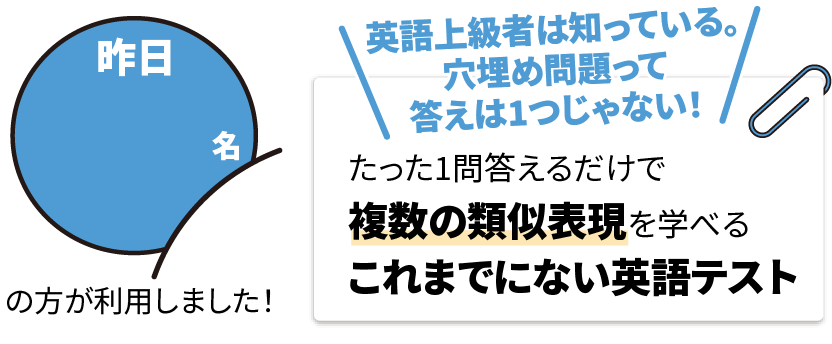Hello, this is Simon.
まず、英文を読んでみよう!
Around this time of year, I’m somewhat heavier than usual, because I eat too much during the holidays. I can’t help it because I love eating. In fact I won’t let anything come between me and my food, which puts a strain on my clothes. They are so tight that not only do buttons come flying off, but some of my shirts are starting to come apart at the seams. I often come down with a cold, which makes we feel even worse, and I tend to come down on myself quite often.
Feeling like that makes it more difficult to come up with ideas for blogs, and this month was no exception. I kept wracking my brains hoping that something would come up, but to no avail. It wasn’t coming along well at all. It seems that a good idea is hard to come by. I had almost given up, when I happened to come across something while checking an assignment.
In the assignment, a student had used the phrase “come off” in the expression “my left ski came off the binding”. I was impressed at how natural it sounded and realized a few things. First, that I have heard very few students use the phrase. Second, that in spite of that fact, it is a very commonly used phrase. And third, that it is quite a strange combination (come + off). If someone hadn’t heard it before, it would probably sound quite peculiar. To “come off” means to become detached from something). This got me thinking about phrasal verbs and how useful they are. So, I thought I would write about some commonly used phrasal verbs based on the verb “come”. As you have probably already realized, I used a number of them in this piece of writing. I’ll explain them below:
comeを使ったイディオムをご紹介!
come between
To “come between” two people means to cause problems between them or to interrupt them
(e.g. Their love is so strong that nothing can come between them./We shouldn’t let something like a small quarrel come between us.)
In my case, I have a special relationship with my food, so “come between” can be used in the same way.
come apart
To “come apart” means to break or separate into several pieces
(e.g. I picked up the old book and it just came apart in my hands./His clothes are coming apart at the seams.)
“Seams” are the stitches that hold the pieces of cloth in our clothes together. To “come apart at the seams” can be used literally for things like clothes and shoes, and also as an exaggeration when they are simply very old and worn.
come down with
To “come down with” something means to start feeling ill from a common contagious disease.
(e.g. I think I’m coming down with a cold./I hope he’s not coming down with the mumps.)
come down on
To “come down on” someone means to criticize or punish them severely
(e.g. The boss doesn’t like the new guy. He’s always coming down on him really hard./The government in is coming down hard on business who don’t adhere to the guidelines under the state of emergency.)
come up with
“Come up with” means to think of an idea or a plan for something. It can also mean to suggest one
(e.g. He is always coming up with great ideas to improve the work environment./They are currently trying to come up with a name for their soon to be born baby.)
come up
To “come up” has a few meanings, such as to be mentioned or talked about in conversation
(e.g. Did the topic of the new schedule come up when you talked to him?),
to appear(e.g. A strange message came up on the screen.),
for a job to become available (e.g. A new job has come up in the sales department.)
and to happen, often unexpectedly (e.g. I have got to leave early today, something has come up at home.)
come along
The phrase to “come along” means to progress, develop or improve
(e.g. His English speaking is really coming along./This plan is coming along quite nicely.)
come by
To “come by” something means to obtain it
(e.g. I came by this piece of furniture at an auction many years ago./Good friends are hard to come by.)
come across
To “come across” means to find by chance
(e.g. While hiking in the mountains he came across a rare kind of bird./I came across this sale when I was reading the morning paper.)
It can also mean to give people a certain impression
(e.g. He comes across as very confident, but he is actually quite nervous around new people.)
come off
To “come off” as mentioned above, means to become detached from something
(e.g. The wheel came off my bike when I had the accident./The wall paper is starting to come off.)
If get the chance please try some of these out!
See you next month!

Hello! My name is Simon.
I am from New Zealand, and have been living and teaching English in Japan since 1999.
My hobbies include movies, playing the guitar, gardening and hiking.
※このブログでは英語学習に役立つ情報アドバイスを提供していますが、本ブログで提供された情報及びアドバイスによって起きた問題に関しては一切、当方やライターに責任や義務は発生しません。
※ここでの情報や助言を参考に英文を書いたり下した判断は、すべて読者の責任において行ってください。ここに掲載されている記事内の主張等は、個人の見解であり当社の意見を代弁・代表するものではありません。








 (4 イイネ!が押されています)
(4 イイネ!が押されています)




























コメントする